Debra L. Martin's Blog, page 266
September 3, 2013
#Excerpt: RUIN by C.J. Scott
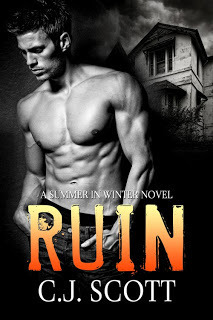
He
gave me a sad smile. "I'm not a monk, Kate. If you kiss me...I can't stop
there."
His
words probably had the opposite effect to what he wanted. It spurred me on,
because now I knew he was on the brink of giving in. On the brink of falling
into the abyss with me.
I
touched his face. His jaw was rough from his stubble. A small muscle pulsed
against my fingers.
"Kate,
please," he whispered. But he didn't pull away. Didn't stop me getting
closer.
I
stroked his lower lip with my thumb, and he groaned deep in his chest.
"Ben,"
I murmured.
He
brushed my hair off my shoulder. His fingers caressed my neck, sending tiny
tingles racing down my spine. My heart hammered against my ribs to the tune of kiss me, kiss me, kiss me. I wanted this
man. Wanted to know him intimately.
My
head told me it was impossible that I could feel this way after such a short
time, but my heart was ignoring it, lost in a mad, chaotic rhythm of its own.
Ben's
hand cupped my hip, his other pressed against my back. It was all the
encouragement I needed. I closed the final small gap between us until I was
crushed against his body. It was hard and ridged, warm.
Our
lips met in a kiss that turned my legs to jelly. My knees buckled, but Ben's
arms circled my waist. He held me there, firm yet gentle, like I was something
precious. I felt dizzy and weightless. The world spun one way and I the other,
out of control. I didn't care. It was exactly what I wanted to feel. Exactly
how I'd always imagined a kiss should
feel.
Yet
I wanted more. The kiss filled me with longing that clawed at my heart. It
wasn't enough. Not nearly enough.
***To
read the extended version of this scene and discover what Ben has tattooed on
his shoulder, check out C.J.'s website http://www.cjscottbooks.com
Book Synopsis:
Kate
Bell isn’t perfect. Not even close. The things she got up to in college
would cause her parents to fall off their pedestals in shock. Home for the
summer vacation, Kate settles in for a long, boring break in the tiny
backwater of Winter with folks who still treat her like she’s twelve.
Then Ben Parker arrives and suddenly Winter gets interesting. He’s hot, mysterious
and good with his hands. Kate falls for him instantly, but her cop
father warns her to stay away. But how can she stay away from someone as
compelling as Ben? Someone who thinks she’s perfect just the way she
is?
When Ben’s secrets catch up to him, not only is Kate’s heart in danger of
being broken, but Ben’s entire future could be ruined.
Goodreads: http://www.goodreads.com/book/show/18168745-ruin?ac=1
Purchase:
--Amazon: http://www.amazon.com/Ruin-Summer-In-Winter-ebook/dp/B00EO2ONH6/ref=sr_1_1?s=books&ie=UTF8&qid=1377294855&sr=1-1&keywords=9780987489968
--B&N: http://www.barnesandnoble.com/w/ruin-cj-scott/1116394146?ean=2940045197717
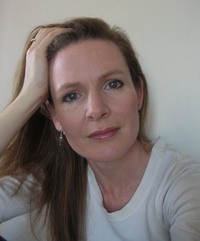
AUTHOR BIO:
C.J. loves reading stories that take her away to
another world. If she’s in the middle of an amazing book, she’ll keep reading
while cooking or cleaning (when she can be bothered doing either).
She likes interesting artwork but can’t paint, sketch or make anything
more complicated than a snowman from plasticine. She enjoys beautiful
gardens but hates gardening. She also hates housework, cooking (see
above) and writing about herself.
C.J. loves connecting with readers. The best place to interact with her
and other fans is via her Facebook page. That’s where she posts teasers
and other stuff from her books.
Author links:
Website / Goodreads / Facebook
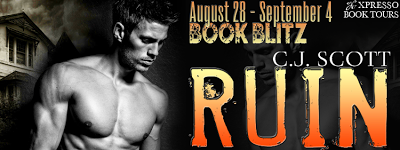


Published on September 03, 2013 05:00
September 2, 2013
LABOR DAY: Is Summer Really Over?
I
am always a bit mystified by the notion that summer officially ends on
Labor Day weekend. Seems everything closes down after the weekend.
Really? Summer doesn't end until Sept. 21. We get some of our best
weather in September and it can also be some of the hottest days of the
season. In any event, in case you were wondering why we have a Labor Day
holiday in the first place, I found this information from the
Department of Labor website http://www.dol.gov/.
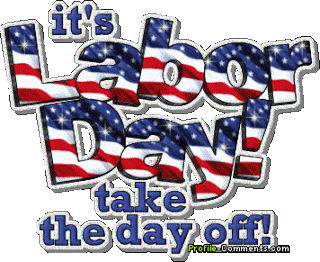
Founder of Labor Day
More
than 100 years after the first Labor Day observance, there is still
some doubt as to who first proposed the holiday for workers.
Some
records show that Peter J. McGuire, general secretary of the
Brotherhood of Carpenters and Joiners and a cofounder of the American
Federation of Labor, was first in suggesting a day to honor those "who
from rude nature have delved and carved all the grandeur we behold."
But
Peter McGuire's place in Labor Day history has not gone unchallenged.
Many believe that Matthew Maguire, a machinist, not Peter McGuire,
founded the holiday. Recent research seems to support the contention
that Matthew Maguire, later the secretary of Local 344 of the
International Association of Machinists in Paterson, N.J., proposed the
holiday in 1882 while serving as secretary of the Central Labor Union in
New York. What is clear is that the Central Labor Union adopted a Labor
Day proposal and appointed a committee to plan a demonstration and
picnic.
The First Labor Day
The
first Labor Day holiday was celebrated on Tuesday, September 5, 1882,
in New York City, in accordance with the plans of the Central Labor
Union. The Central Labor Union held its second Labor Day holiday just a
year later, on September 5, 1883.
In
1884 the first Monday in September was selected as the holiday, as
originally proposed, and the Central Labor Union urged similar
organizations in other cities to follow the example of New York and
celebrate a "workingmen's holiday" on that date. The idea spread with
the growth of labor organizations, and in 1885 Labor Day was celebrated
in many industrial centers of the country.
am always a bit mystified by the notion that summer officially ends on
Labor Day weekend. Seems everything closes down after the weekend.
Really? Summer doesn't end until Sept. 21. We get some of our best
weather in September and it can also be some of the hottest days of the
season. In any event, in case you were wondering why we have a Labor Day
holiday in the first place, I found this information from the
Department of Labor website http://www.dol.gov/.

Founder of Labor Day
More
than 100 years after the first Labor Day observance, there is still
some doubt as to who first proposed the holiday for workers.
Some
records show that Peter J. McGuire, general secretary of the
Brotherhood of Carpenters and Joiners and a cofounder of the American
Federation of Labor, was first in suggesting a day to honor those "who
from rude nature have delved and carved all the grandeur we behold."
But
Peter McGuire's place in Labor Day history has not gone unchallenged.
Many believe that Matthew Maguire, a machinist, not Peter McGuire,
founded the holiday. Recent research seems to support the contention
that Matthew Maguire, later the secretary of Local 344 of the
International Association of Machinists in Paterson, N.J., proposed the
holiday in 1882 while serving as secretary of the Central Labor Union in
New York. What is clear is that the Central Labor Union adopted a Labor
Day proposal and appointed a committee to plan a demonstration and
picnic.
The First Labor Day
The
first Labor Day holiday was celebrated on Tuesday, September 5, 1882,
in New York City, in accordance with the plans of the Central Labor
Union. The Central Labor Union held its second Labor Day holiday just a
year later, on September 5, 1883.
In
1884 the first Monday in September was selected as the holiday, as
originally proposed, and the Central Labor Union urged similar
organizations in other cities to follow the example of New York and
celebrate a "workingmen's holiday" on that date. The idea spread with
the growth of labor organizations, and in 1885 Labor Day was celebrated
in many industrial centers of the country.

Published on September 02, 2013 05:00
September 1, 2013
What a Deal! #Romance BILLIONAIRE GAMES boxed set is only .99
Romance readers here's a deal that you shouldn't pass up. The BILLIONAIRE GAMES boxed set by award-winning author Sandra Edwards is on sale for only .99! I've read the stories and absolutely loved them. Highly Recommended.
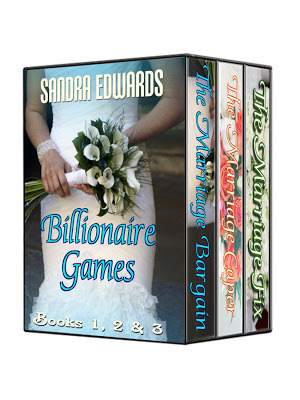 Praise for Billionaire Games ~ "The Billionaire Games series is a
Praise for Billionaire Games ~ "The Billionaire Games series is a
delectable feast, as rich and sumptuous as a wedding cake. Sandra
Edwards whips up sensuously romantic love stories set amid the lush
countryside of France. I devoured every sweet nuance in these remarkable
tales of everlasting love." ...Award-winning author Cara Marsi
In
THE MARRIAGE BARGAIN Julian de Laurent needs a temporary wife. Camille
Chandler needs a job after he inadvertently gets her fired. If she
agrees, he'll pay her five million to marry him. It's just a business
deal, but neither could have foreseen what happens next, especially
Camille, when she learns he's capable of stealing her heart.
In
THE MARRIAGE CAPER Andre de Laurent, Julian's little brother finds
himself in a predicament. Is it possible that Tasha Gordon, his new
sister-in-law's best friend, is the answer to his prayers?
In THE
MARRIAGE FIX little sister Lecie travels to America where she may well
have found her Prince Charming--who's in desperate need of help.

 Praise for Billionaire Games ~ "The Billionaire Games series is a
Praise for Billionaire Games ~ "The Billionaire Games series is adelectable feast, as rich and sumptuous as a wedding cake. Sandra
Edwards whips up sensuously romantic love stories set amid the lush
countryside of France. I devoured every sweet nuance in these remarkable
tales of everlasting love." ...Award-winning author Cara Marsi
In
THE MARRIAGE BARGAIN Julian de Laurent needs a temporary wife. Camille
Chandler needs a job after he inadvertently gets her fired. If she
agrees, he'll pay her five million to marry him. It's just a business
deal, but neither could have foreseen what happens next, especially
Camille, when she learns he's capable of stealing her heart.
In
THE MARRIAGE CAPER Andre de Laurent, Julian's little brother finds
himself in a predicament. Is it possible that Tasha Gordon, his new
sister-in-law's best friend, is the answer to his prayers?
In THE
MARRIAGE FIX little sister Lecie travels to America where she may well
have found her Prince Charming--who's in desperate need of help.

Published on September 01, 2013 05:08
August 31, 2013
New #HORROR Release: GIGGLES by Mike Crane
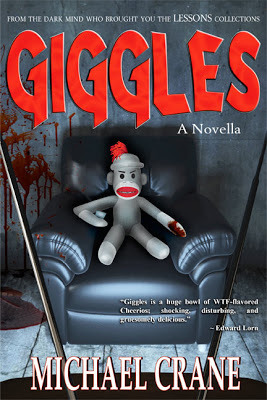
Book blurb:
It
was supposed to be a simple robbery. But when things go horribly wrong
and a bank teller winds up dead, Chad and Ray need to keep themselves
hidden from the law. They find a house where conveniently the family is
absent. It should’ve been the perfect place for them to stay out of
danger.
But there’s a greater danger lurking inside. A child’s sock monkey
waits in the shadows and has terrible, awful plans for the pair.
From the author of LESSONS AND OTHER MORBID DRABBLES comes a tale of pure terror and mind games.
Mr. Giggles is ready to play…
Buy links:
BN.com: http://www.barnesandnoble.com/w/giggles-michael-crane/1116798394?ean=2940148616092
Smashwords: http://www.smashwords.com/books/view/352464
Amazon:

Published on August 31, 2013 04:30
August 30, 2013
#Review: YELLOW CROCUS by Laila Ibrahim
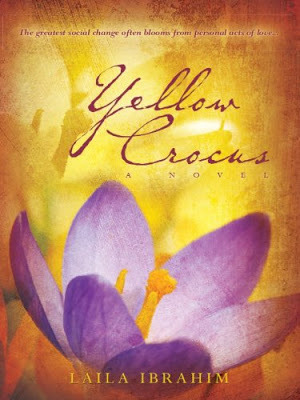
 5 of 5 stars
5 of 5 starsYELLOW CROCUS follows the poignant story of Elizabeth Wainwright born to prosperous plantation owners and her black nurse, Mattie. As Elizabeth grows up, she begins to learn what it means to own slaves and she has a difficult time reconciling her love for Mattie with the treatment that slaves endure throughout their lives. When she witnesses a horrific incident, Elizabeth must either accept it as part of life being a mistress of a plantation or change the course of her life.
The author weaves an engaging story flawlessly told between Elizabeth and Mattie's point of view. The bond they share will be tested and I found it hard to put the book down. I wanted to know what happened next. That's the greatest compliment I can give an author. Ms. Ibrahim had captured my full attention and even after I finished the book, I found myself thinking about it. The book is full of heartbreak, joy, unimaginable sorrow and happiness as the events in pre-Civil War are played out. Highly Recommended.
I received this book in exchange for a fair and honest review.

Published on August 30, 2013 07:31
Interview with Chanda Hahn
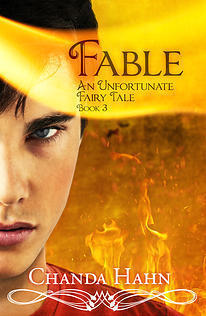
If you were stranded on a dessert island what 3 things would you want?
A genie in a lamp, a hammock,
and a book.
If you could live anywhere in the world where would it be?
Right here in Portland Oregon.
What is your favorite drink?
Iced Blackout from Black Rock
Coffee Bar
What is your favorite dessert?
Tiramisu
What was your favorite book as a child?
Watership Down by Richard
Adams. I was a heavy reader.
Redwall by Brian Jacques
Nancy Drew’s
What do you do in your free time?
I love writing, reading and
making things like Jewelry and costumes.
Any Hidden talent?
I sing and play drums.
What made you want to become a writer?
I never wanted to be a writer,
I wanted to be a book reviewer, because I loved reading and recommending books
to people. I had a fondness for classics and reader friendly books for all
ages. Something that any age would want to read, whether they were 10 or
50. But one day, I was really bored and I had an idea floating around in my
head and I went for it. It’s been a learning experience, good and bad.
What made you want to write about the Brothers Grimm?
I liked the idea of them being
collectors of stories. What made them travel and gather all of the different
tales? What was their motivation for doing that? So I decided to create my own
spin on it.
Who is your favorite character to write?
I love writing Jared’s snarky
comments, and Nan’s quirky insane chatter.
What music do you listen to while writing?
I don’t listen to music. I like
white noise, coffee shop noise, or I’ll put on a tv show and put headphones on
to muffle it.
What are you most proud of?
My kids, my husband and then my
books. In that order.
If you had to be stuck in any Grimm fairy tale, which one would it be?
I’d pick Sleeping Beauty, so I
could catch up on all of my missed nights of sleep because of writing and wait
for my handsome prince to wake me up with a kiss.
If you could travel in time, would you travel to the future or the
past?
The past. I have no desire to
know what the future holds, but I’m extremely interested in history, especially
the clothes.
What is your favorite thing to eat for breakfast?
Biscuits and Gravy, but usually
I just have coffee.
Night Owl or Early Bird?
Early Bird. I can not stay up
past 9 unless I’m in the middle of writing a chapter.
Skittles or M&M’s
Mmmmm chocolate.
Reviews:
"Riveting!
Fable is a wild adventure that sucks you in and doesn’t let go until the very
last word. Mina Grimm is a pleasure. Buckle up—this isn’t your average fairy
tale." -- Addison Moore
New York Times Bestseller
An exciting continuation of The Unfortunate Fairytale series,
FABLE catapults us further into mystical lands of action, adventure and the
fantastical. Mina is a spunky, courageous heroine you'll be rooting for until
the dramatic ending."
-Elle Strauss, author of the
bestselling Clockwise Series
Book Blurb:
Book 3 in the
UnEnchanted Series.
All that glitters is not gold.
When something precious is stolen from sixteen-year-old Mina Grime, she will
do anything in her power to get it back, even if it means traveling to
the dangerous Fae plane and battling one of the strongest fairy-tale villains
yet.
However, nothing can prepare Mina for the dangerous obstacles she will face
in the Fae world, or the choices she must make when love and life are
on the line.
Goodreads: http://www.goodreads.com/book/show/17904700-fable?ac=1
Purchase:
Direct purchase link on Amazon will not be available before
release day but will be found here:
--Amazon: http://www.amazon.com/s?_encoding=UTF8&field-author=Chanda%20Hahn&search-alias=digital-text
--B&N: http://www.barnesandnoble.com/w/fable-chanda-hahn/1116244310?ean=2940044661363
Purchase
links book 1:
--Amazon: http://www.amazon.com/UnEnchanted-Unfortunate-Fairy-Tale-ebook/dp/B006ROK1UM/ref=sr_1_1?s=digital-text&ie=UTF8&qid=1377296037&sr=1-1
--B&N: http://www.barnesandnoble.com/w/unenchanted-chanda-hahn/1108148275?ean=9781475070309
Purchase
links book 2:
--Amazon: http://www.amazon.com/Fairest-Unfortunate-Fairy-Tale-ebook/dp/B0087XDOYG/ref=sr_1_3?s=digital-text&ie=UTF8&qid=1377296037&sr=1-3
--B&N: http://www.barnesandnoble.com/w/fairest-chanda-hahn/1111648505?ean=2940014722520
AUTHOR BIO
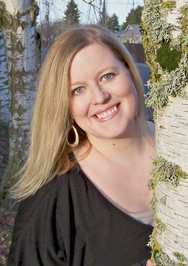
Pronunciation: Sh-and-uh H-ah-n
Chanda is the author of the popular YA Unfortunate Fairy Tale Series
which includes UnEnchanted and Fairest. Both books have topped
the ebook charts in 5 countries. She also pens YA epic Fantasy.
She was born in Seattle, Washington, raised in Nebraska, has lived in MN,
IL and currently lives in Portland, Oregon with her husband and twin
children. She's a former children's librarian and children's pastor.
Currently she spends her free time penning new novels and a daytime
taxi driver for her kids.
Author links:
Website: http://www.chandahahn.com/
Goodreads: http://www.goodreads.com/author/show/5441556.Chanda_Hahn
Facebook: https://www.facebook.com/ChandaHahnAuthor
Twitter: https://twitter.com/chandahahn
Grand prize giveaway
Open internationally
Prizes:
--25$ Amazon Gift Card
--A paperback of any of Chanda's books - winner's choice
a Rafflecopter giveaway
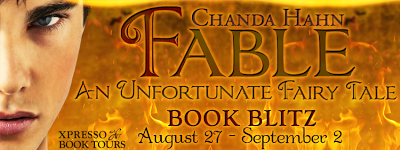


Published on August 30, 2013 05:00
August 29, 2013
#Excerpt: Annie Crow Knoll: SUNRISE by Gail Priest
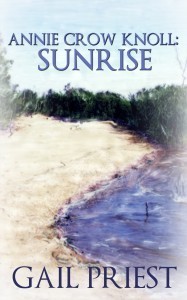 Packard probably should have
Packard probably should havestayed in Rock Harbor after delivering his last haul and gotten Bud Nelson to look at the engine on Sophie. It wasn't running smoothly, but he’d wanted to get back. He'd been out fishing for a few
days and wanted to check on
Annie. Knowing
that Bo was out there nearly every day helped, but Packard had gotten into the habit of making sure his young neighbor was safe
and helping out whenever he
could. He nursed
Sophie back up the bay, figuring he
could solve the engine problem
himself the next
day.
When Packard pulled into his
dock, he noticed an unfamiliar boat in one of Annie’s slips. Instinct took over
as he headed up his pier. People didn't visit by boat this time of year and
certainly not at this time of night.
Following that instinct, he made
a quick detour to the house and grabbed his father's
shotgun. It wasn't loaded, and Pack hadn't fired it since he was fourteen. On
his first and only hunting trip, he’d
brought down a Canada Goose, much to his father's pleasure.
However, when his dad pushed on the poor dead bird's chest and the escaping air
made a honk, there was no joy in it for young Packard. He never hunted again.
I
shouldn't have left her alone for so many days, Pack chided himself while crossing the field, feeling foolish carrying an unloaded
shotgun. But if his gut was telling him
the truth, and Annie was having a problem with an unwelcome guest, at least he could give the intruder a good whack on the head with the
butt of the shotgun.
"Maybe you could use some
help around here?" Pack heard the man’s voice as he rounded the back of Sunrise Cottage. He held back, though,
giving Annie the chance to
handle it
herself if she could.
"No, I don't," Annie
said.
"Ah, come on. You must need
a hand. I could use a job, but I'd be happy to work a deal."
Packard's hands tightened around
the shotgun. "I'm not hiring
anyone."
"Well, then. Why don't you
show me your cottages? Maybe I'll rent one," he added.
"We're all booked."
"That surprises me since
I've seen your advertisement."
"Look, if you're really
interested, come back in the daylight,” Annie said.
"So you're not all
booked?"
Annie didn't respond.

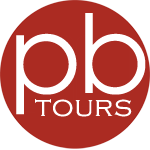
Follow the Tour
We are giving away 5 swag packs (water bottles, key-chains, and bookmarks)
a Rafflecopter giveaway

Published on August 29, 2013 05:15
August 28, 2013
Interview with Margo Ander
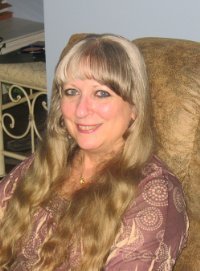
Hi, Debra. Thank you so much for
hosting me today! I try to keep up with Two
Ends of the Pen, and I was delighted that you wanted to interview me as
well as review my book. I feel honored to be here.
Besides
writing, do you have any other passions?
Definitely the Three Rs—Reading, Writing, and Riding. The
reading and writing part are pretty much what you’d expect for a writer. The
riding part is a bit more complicated. When I get on a horse, I can actually
feel a deep change come over me, a sense of completeness so profound that it’s
probably safe to say that if I’m not riding every day, I’m not in my right
mind. Unfortunately, my horse Circe, the inspiration for Wyl’s horse Firebrand
in my story, is twenty-nine years old now and has some age-related health
problems that have us both grounded. Not only do I really miss the nonstop,
nonverbal conversation that takes place between us when riding, but riding is my
favorite form of exercise. I’m also a reformed adrenaline junky—I’m no longer
suffering from immortality like I did when I was younger and did some really stupid
things on horseback, but just getting on a horse still opens the window of
opportunity for a sneaky adrenaline fix.
I also enjoy acrylic painting and pastels, hand-sewing and
embroidering fun stuff like medieval garb, and tribal belly dancing. My elder
daughter introduced me to manga and anime a couple years ago; I love Fullmetal Alchemist, Full Metal Panic!,
and Dogs: Bullets and Carnage. Now
she’s doing her best to get me hooked on Korean dramas, so the list of
recreational interests just keeps getting longer, but finding time to indulge
in them keeps getting harder and harder. I work full-time and write full-time, and
my husband and I are virtually empty-nesters, so I’m trying to spend more time
with him and take advantage of opportunities to spend time with our girls now
that I don’t see them every day.
What is
your writing process? Do you listen to music or do you like silence?
I bought a nice recliner with the proceeds of my first paid
writing gig—a video script—and I’ve logged a lot of hours in it ever since. I
do most of my writing now in a little room at the back of my house, with my keyboard
in my lap and a big monitor about four feet away (so I can put my feet up in
the recliner). My fifteen-year-old tortoiseshell cat, Cookie Monster, likes to
hang out with me there. I play movie scores when I’m actually focused on
writing or editing—nothing with lyrics. Pirates
of the Caribbean, Conan the Barbarian, Batman, Thor, and Batman Begins did a lot of the heavy
lifting for Rebel. If I’m plotting, I
sometimes like silence, no artificial mood influencers. When I need to come up
for air and reenergize, a good action-adventure movie helps get me back on
track.
Do you
outline your story or just go where your muse takes you?
I used to be a dyed-in-the-wool pantser—it was exciting to
chase off after every fresh inspiration and spontaneously adapt my stories to
the challenge. Unfortunately, I like twisty, complex plots, so every story I
wrote ended up trapping my characters in corners they couldn’t get out of. I
finally got frustrated with going nowhere fast and my 2010 New Years resolution
was to do everything differently—from
focusing on just one story (I have fourteen series in various stages of
development), to starting writing at 3 a.m. instead of 10 p.m., to plotting the
story backwards—and as a manga!
The manga approach got me unstuck, but really didn’t suit the story.
Everything else, however, affected my productivity so dramatically, I’ve never
looked back.
My initial outline is pretty bare-bones—I’d much rather be
writing content than an outline, so I compromise by writing out every major
turning point or emotionally-pivotal scene as a part of the outline process. With
a nine book series, it’s the only way I can be sure all the puzzle pieces fit
together. I make heavy use of Word’s bookmarks feature—a bookmark for every
scene—and during the editing phase, I upload the manuscript onto my Nook, which
shows the bookmarks as chapters in the Table of Contents. I hand-write the TOC and
page numbers into a table, creating on the spot the most up-to-date and accurate
outline of the story without wasting time making a new standalone outline. I
use that to manipulate the flow of the plot and the various POV characters. With
a 150,000 word manuscript, I feel an accurate outline and bookmarks are
indispensable.
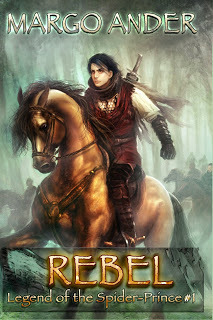
Have you
ever had a minor character evolve into a major one? Did that change the
direction of the novel at all?
Funny you should ask! The Legend of the Spider-Prince series started out as a single book
that I struggled to make work—the initial concept had been a simple retelling
of Rapunzel from the witch’s point of
view for my kids during a car ride, but I had to make some significant changes
to the fairy tale world to support the very different version I made up, and no
matter what I did when I wrote it out later, the opening drowned in backstory
and world building.
I wrestled with that problem for years, and eventually
realized that the main character was neither the witch nor Rapunzel, but rather
a minor, yet pivotal, character from the end of the original story, and that
the story itself was no longer Rapunzel.
By the time I sorted out whose story I was actually telling, and how much room
I would need to tell it, the original book had become Book 7, the beginning of
the final trilogy in the series. It was very unexpected, but all the pieces
just fell into place, and it was what it was. I was a little exasperated—my
original intention had been to come up with a single, standalone YA novel
instead of Yet Another series (and a more adult one at that)—but the story
itself was too exciting to let drop.
Do you
belong to a critique group? Have they helped improve your writing?
I have a degree in English and a library of about one
hundred writing books, but nothing can take the place of frank, knowledgeable
feedback on your own writing. I’ve been seriously pursuing a writing career for
over twenty years, but I can honestly say my growth as a professional storyteller
stagnated until I began giving and getting critiques. Until two years ago, the
only people who’d read any of my drafts were family, and of them, only my
youngest sister is a fantasy reader.
I only learned about www.critters.org
in August 2011 and immediately joined the Science Fiction and Fantasy Workshop
there. The first critiques I got back were a shock, but eye-opening and
undeniably true. That experience kicked off a frenzy of improvement in my craft.
I discovered www.critiquecircle.com
this past January, and though the critique process there is different, the
feedback has been just as helpful. I’m really grateful to have had the benefit
of so many other authors’ insights. Lesson learned: A writer needs readers and
feedback. You can’t grow in a vacuum.
What
factors influenced your decision to self-publish your book(s)?
I really wrestled with that decision. Self-publishing offers
complete artistic freedom, but it’s non-writing and labor-intensive with a
steep learning curve. Like a lot of authors, I’m far more interested in writing
than running a publishing business, and it was tempting to team up with a
traditional publisher. But the reality is, if you want to have readers, you
have to do more than just write, no matter which route you take to publication—especially
if you are unknown. Both paths have their pros and cons, but either way, you’re
going to be doing some marketing.
The decision to go indie became a no-brainer for me just
this April, when I finally asked myself the right question: What if I sold my
first book to a traditional publisher, and it sold some copies, but failed to meet
sales expectations?
The sad truth to traditional publishing is that a new author
has about three months to prove herself before her book starts getting pulled
from the shelves. I’m a series writer. If I sold the rights to the first book
in this series, spent years jumping through the hoops of the traditional
publication process, only to have my publisher pull the plug on Book 1 after
just three months on the shelf—ironically, about the same amount of time as it
takes for SEO to produce results!—I would be devastated, and the other eight
books in the series would never get read. Even self-publishing, you can’t
seriously expect to sell a series without the rights to the first book!
J. K. Rowling wasn’t an overnight success—I believe it wasn’t
until her third book came out that the Harry Potter series really took off. (That’s
when I bought the first Harry Potter book to read to my girls and discovered
that there were some really good stories being written in the YA genre that an
adult would enjoy.)
I’ve been writing all my life, and I don’t intend to stop,
so I’m comfortable taking a longer view. I have a day job—it’s not like I need
a publisher to spot me a loan against my future sales (an advance) to pay my bills.
I think the Legend of the Spider-Prince
series is a great story—even fifteen years after I came up with it, I still get
excited about the story line and can’t wait to get back to work on the rest of
the series. I think there’s an audience for LotSP,
and I believe good things come to those who have the patience and commitment to
do what needs to be done, including learning new skill sets like social media,
marketing, and the like. It seems unrealistic to me to expect instant
gratification in terms of sales. Since even the big dogs in the publishing world
are struggling with discoverability, impatience for results seems
counterproductive for a career writer.
If you
used a graphic designer/publisher’s designer, how involved were you during the
creative process for your cover?
I’m so pleased that that whole experience! As an indie
author, I had total freedom to decide what my book was going to look like,
something a traditionally-published, debut author has little or no say in—we’ve
all picked up books where the cover had little to do with what was inside.
The hardest thing was coming up with what I wanted. Because
I’d originally intended to traditionally publish, I didn’t have a war chest for
producing my book and had deliberately tried NOT to think about what kind of
cover it would end up with. So, once I made the decision to go indie, I decided
to make my own cover. I’m a fair amateur artist, so I made about five different
acrylic paintings, trying to get the cover right. I really enjoy painting, but
none of those covers satisfied me. My cover painting style might work for a
manga, but not for an epic fantasy. The truth is, all my energy has gone into
becoming a professional writer, not a professional artist.
Once I recognized that fact, I scraped together a small war
chest to pay for a cover. I googled “fantasy artist,” and started hunting
through the Internet for a “real artist.” The portfolios for the first
half-dozen artists I looked at made me feel my own covers weren’t so bad—which
was discouraging because I didn’t want to use them. Then I saw Kirsi Salonen’s
portfolio, and it was love at first sight. She’s a professional artist in
Finland who is also working on a fantasy book series of her own. Her style
reminds me of what I like about Frank Frazetta and Boris Vallejo, but with a
fresh and exotic feel that is definitely her own. It just seemed to resonate
with my story, and I stopped looking at other artists. On April 23, I emailed
her to ask if she was interested in doing my cover, though I didn’t think I
could afford her.
Happily, not only was she interested, but we were able to
work out a deal at a price I could meet. I sent her the first two chapters leading
to the scene I wanted for the cover, and mentioned a few of her portfolio
pieces that captured aspects of the setting or character description. Finland
is about eight hours ahead of me, so over the ensuing weeks, we emailed back
and forth a series of sketches for comment and tweaks at my lunch time and her
end of the day. I’m so thankful that she’s very fluent in English, since my
Finnish is non-existent! She sent my first sketch on May 19, and on July 18, I
had not just my ebook and paperback cover, but also a beautiful 18” x 24”
poster of the cover, which is part of the prize in my Rafflecopter drawing for
this blog tour. I’m thrilled with how well the cover turned out, and just laugh
now when my family admits how relieved they are that I didn’t go with one of my
own paintings!
Do you
find it difficult to juggle your time between marketing your current book and
writing your next book?
This is an ongoing challenge. Trying to find a sustainable
routine that allows me to do all the things I need to do is actually the real
focus of my life right now. I’m not naturally a moderate person—usually, it’s
all or nothing—and I did a good job of wrecking my health writing Rebel, which was my wake-up call for
moderation. I have a pretty sedentary day job and combining that with 45 hours
a week in my recliner with my keyboard, writing Rebel left me with twenty-five pounds I don’t need and as
physically fit as a coma victim. Writing full-time, working full-time, and
having a family life was and is a tough balancing act in itself. I had to make
some hard sacrifices in my social life, and “free time” just doesn’t exist. Now
marketing has been added into the mix, and I don’t foresee it ever going away. I
know I’ll have to find efficiencies to make the best use of the time I spend
promoting Rebel because the moment is
fast approaching where the need to get back to writing the rest of Legend of the Spider-Prince is going to
start eating me alive.
As to the marketing itself, I’m practically a hermit, so I’m
not very comfortable with social media, but what’s the point in paying such a
high price to write a good story, then balking at a little shameless
self-promotion? I’ve been practicing putting the shameless into my self-promotion by telling people who I know don’t
bite that I’ve published a book. It’s been actually kind of fun, babbling about
writing Rebel and what I’ve learned
about the book business so far—this is all very novel to me. I’m trying to look
at this as the “reward phase” of publishing my book, getting to rebuild my
social life by connecting with people who share my love for books and stories. In
a lot of respects, marketing as just another aspect of storytelling—the story
about my story. If I use that approach to marketing, I’m more comfortable with
it. This is fiction, after all. People don’t need to read it. It’s entertainment, an enjoyable pastime, and Legend of the Spider-Prince won’t be
that for everyone. People like what they like. I don’t ever want to make
someone feel like they have to like
what I write—I just hope that they do.
What
advice would you give a new author just entering into the self-publishing
arena?
I’d like to pass on a great piece of advice I got from
author Simon Hawke after I left the Air Force and decided to make a serious career
of writing—don’t tell your story until after it’s written, or it may never to
get written at all. Don’t squander the creative energy and excitement that fuels
the writing process by telling instead of writing.
My own experience drives my next bit of advice: Don’t let
your first draft be your manuscript. I’ve been there, so excited to finally finish
a book that I just spell-checked it, boxed it, and sent it off to a publisher’s
slush pile. (That was back in the Dark Ages, pre-Internet.) Oh, the things I
didn’t know, that I didn’t even know I didn’t know! Whole books have been
written on THAT subject but, bottom line, a draft is not the same as a finished
manuscript.
Learn the different types of editing—developmental,
copyediting, and proofing, and use them yourself. Learn the tools of the trade.
There are two parts to being an author—having a story worth writing, and
crafting a story worth reading. Don’t waste your time or money proofreading a
first draft, thinking the result is a “professionally-edited manuscript.” Editing
your own work is a part of the overall writing process. Good editors can take
your story to the next level, but they can’t work miracles—garbage in, garbage
out! That’s why you need to write another draft. Don’t expect editors to write
your story for you. Give them a diamond to polish, not a rinsed-off bit of Coke
bottle!
During the self-editing process, use a “style manual” like a
good, professional editor does. As a matter of craft, you will learn a lot
about the art of putting words together. My personal favorite is the Chicago
Manual of Style because it allows me to be more concise. It is available and
searchable online, so it doesn’t take up desk space. The simplest style manual to
use is the AP Style Manual that journalists and business writers use. I use
that one in my day job, and yes, switching between detail-oriented Chicago at
home and simpler AP at work can make my head spin.
Whatever your personal taste in matters of grammar, style,
punctuation, and a bazillion other arcane matters about the craft of writing, make
a point of using a style manual as your guide. Then, when it comes time to have
your work professionally edited, be sure to ask your editor or proofreader what
style manual they use and why. If
they can’t answer that—or if they give you a blank look!—I’d find another copyeditor
or proofreader. I don’t expect perfection from any book, indie or traditionally
published, but I can’t tell you how many indie books I’ve picked up that
acknowledge a “wonderful editor” who was obviously a proofreader, leaving the
book still in dire need of either developmental editing or copyediting or both.
What’s
next for you?
I’m working on Book 2 in the Legend of the Spider-Prince series. Rogue picks up where Rebel
left off. Wyl may not know how to play nice, but those who DO have their own
agendas, and words can be just as deadly as weapons. This isn’t child’s play,
and as Wyl becomes even more entangled in the dangerous web of magic, court
intrigue, and revenge that is his life, the stakes ratchet higher, and it will
take everything he has—and more—to stay in the game.
Visit my website at: web site: http://www.margoander.com
Thank you, Debra, for hosting me on Two Ends of the Pen!

Published on August 28, 2013 05:00
August 27, 2013
AFFECT vs. EFFECT by Grammar Girl
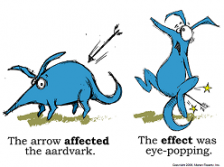
What Is the Difference Between Affect and Effect?
Before we get to the memory trick though, I want to explain the difference between the two words: The majority of the time you use affect with an a as a verb and effect with an e as a noun.
When Should You Use Affect?
Affect with an a means "to influence," as in, "The arrows affected Aardvark," or "The rain affected Amy's hairdo." Affect can also mean, roughly, "to act in a way that you don't feel," as in, "She affected an air of superiority."
When Should You Use Effect?
Effect with an e has a lot of subtle meanings as a noun, but to me the meaning "a result" seems to be at the core of all the definitions. For example, you can say, "The effect was eye-popping," or "The sound effects were amazing," or "The rain had no effect on Amy's hairdo."
Common Uses of Affect and Effect
Most of the time, affect is a verb and effect is a noun.
There are rare instances where the roles are switched, and I'll get to those later, but for now let's focus on the common meanings. This is "Quick and Dirty" grammar, and my impression from your questions is that most people have trouble remembering the basic rules of when to use these words, so if you stick with those, you'll be right 95% of the time.
So, most of the time, affect with an a is a verb and effect with an e is a noun; and now we can get to the mnemonics. First, the mnemonic involves a very easy noun to help you remember: aardvark. Yes, if you can remember aardvark—a very easy noun—you'll always remember that affect with an a is a verb and effect with an e is a noun. Why? Because the first letters of "a very easy noun" are the same first letters as "affect verb effect noun!" That's a very easy noun. Affect (with an a) verb effect (with an e) noun.
"But why Aardvark?" you ask. Because there's also an example to help you remember. It's "The arrows affected Aardvark. The effect was eye-popping." It should be easy to remember that affect with an a goes with the a-words, arrow and aardvark, and that effect with an e goes with the e-word, eye-popping. If you can visualize the sentences, "The arrows affected the aardvark. The effect was eye-popping," it's pretty easy to see that affect with an a is a verb and effect with an e is a noun.

The illustration of the example is from my new book. It's Aardvark being affected by arrows, and I think looking at it will help you remember the example sentences; and it's cute. You can print it out and hang it by your desk.
So a very easy noun will help you remember that affect with an a is a verb and effect with an e is a noun, and the example will help you see how to use both words in a sentence.
Rare Uses of Affect and Effect
So what about those rare meanings that don't follow the rules I just gave you? Well, affect can be used as a noun when you're talking about psychology--it means the mood that someone appears to have. For example, "She displayed a happy affect." Psychologists find it useful because they know that you can never really understand what someone else is feeling. You can only know how they appear to be feeling.
And, effect can be used as a verb that essentially means "to bring about," or "to accomplish." For example, you could say, "Aardvark hoped to effect change within the burrow."
http://www.quickanddirtytips.com/education/grammar/affect-versus-effect

Published on August 27, 2013 05:00
August 26, 2013
Interview with Emma Right
Can you
give us a brief overview of your latest book? Is it part of a series?
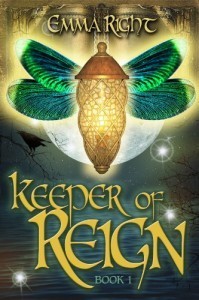 Keeper of Reign Book 1 is a young adult/middle grade fantasy
Keeper of Reign Book 1 is a young adult/middle grade fantasyabout a young Elfie, Jules Blaze, who lived in the Kingdom of Reign. The Elfies
are a blend of Elves and fairies, and used to be big and normal, like us
humans, but something triggered a curse and the entire Race was reduced. This
happened centuries ago. Now, they just sort of accept life the way it's always
been--much like us humans when we get used to a rough patch and don't do
anything about it, and think, well, it's part of life to suffer. But, really,
is it?
In the story, Jules, the sixteen-year-old, wanted to take
matters into his own hands, because he really believed he could make a
difference. Except things spiraled out of control in his life as one by one his
family member faced danger. Would this stop him from trying to make a
difference? Would he stop trying because of obstacles? Should he stop trying?
In many ways, Keeper of Reign, is an allegorical fantasy, in that it reflects
our human plight. At what point do we allow the troubles of this world to stop
us from doing what is right? What is good? That was Jules's journey to maturity
and growth.
Do you
have a favorite character?
Probably Jules Blaze, the sixteen-year-old
protagonist. He tries so hard to make a difference but he has to face so many obstacles and as a youngster he
doesn't see the value of family and a safe home until these things were all
lost. It was a lesson he had to learn, to gain wisdom and re-learn what was
most important to him--his family and his Kingdom. He faced many conflicted
decisions, but through perseverance and some smart moves he realized the
importance of the Ancient Books and that he had it within him to overcome
Whisperer, the main villain in Book 1.
What
factors influenced your decision to self-publish your book(s)?
I always like to stay current, and after studying the
publishing atmosphere these days I felt that even after all the trouble of getting
a literary agent, I'd still have to wait before the agent can sign up a
publisher, and even then it might take a year or two before the book could be
ready for the public. In addition, with the publishing climate right now,
publishers don't dish out wads of cash any more, unless the writer is JK
Rowling, and even if the author gets a tidy sum it doesn't mean the publisher
would actually stand behind the book with enough marketing money and power. For
the most part, they'd reserved that for the brand-name authors.
So what does that leave me? A newbie? I'd still have to
market Keeper of Reign, as I'm doing now. And after all the hard work, the
author only get about 10% of the royalties. Besides, this way, too, I feel I
can get on the ground and see what readers have to say. So, taking all things
into consideration, I thought I'd give self-publishing a shot. Besides, I'd
always believed in the power of the little people. And I feel self-publishing
could show that the author-entrepreneur can make it.
If you
used a graphic designer/publisher’s designer, how involved were you during the
creative process for your cover?
I hired a cover designer and we got our brains together and
hashed out a plan. I felt the dragonfly lantern played an elemental role in the
story, so we decided to go with the cover we now have.
Do you
outline your story or just go where your muse takes you?
I am more of an organic writer in that I have
a story in my head, an idea I'd like to grow, and once I start with the
character and the conflict, the story blossoms on its own. I just keep writing
until the end. So I don't really outline--I just go with the flow. But then
once I am done with the first draft, I do try to give it some kind of
structure-- I go back to the piece
(about six-seven months later) to rearrange scenes and plots so that it
has the traditional framework that is recognized as the basic architecture of
what a good story should be--the 1/4-1/4/1/4/-1/4 structure.
Did you
hire an editor to review your manuscript before publishing?
Yes, two actually. One is a creative writing professor at a
university who has written and published about sixty books with a traditional
publishing house, and the other is an editor and up and coming author, herself.
What have
you’ve learned during your self-publishing journey?
I learned that when I put my book out there, in the wide
world of Amazon and beyond, I will get praises, but I will also get criticisms,
and it's just a fact of life, but that was something I never realized before.
No one single book is for everyone. Some people may be offended, some may be
confused, some may actually get it. I took a look at some of the bestselling
authors and their books on Amazon, and I see that they, too, get five and one
star reviews, and they have been doing this for decades, made millions, and
even won awards. Not everyone can
eat jalapeno, without hiccuping. But as long some people enjoy the book, that's
what's important.
Besides
Amazon, are there any other sites where your books are for sale?
Right now I am just concentrating on Amazon. But Keeper of
Reign 1 is also available in paperback at BN, and by the end of next month it
should be in all the major e-retailers and hopefully in some bookstores, too.
But I gravitate toward ebooks, myself, especially after I learned how many
thousands of books get pulped each year. I think it's such a waste. But that's
just me.
What kinds
of marketing [twitter, facebook, blog, forums] are you involved with for
promoting your book(s)?
I pretty much use the big four--twitter, FB, blog tours, and
my own website. I have never really tried to be involved in forums but maybe
it's something I would look into eventually. There are just so many hours in a
day, and I'd rather be writing stories.
What’s next
for you?
I am currently
editing Dead Dreams, a young adult psychological mystery thriller, and that
should be ready December 2013. And I hope to have Keeper of Reign Book 2 out
early 2014. Some readers (book bloggers, mostly,) have asked me to write a
prequel for Keeper of Reign. I might. Time is my enemy these days.
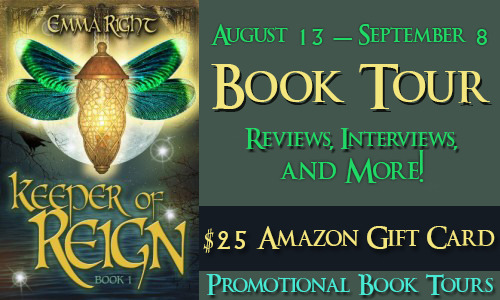
The author is giving away a $25 Amazon Gift Card. Fill out the form below to Enter
a Rafflecopter giveaway
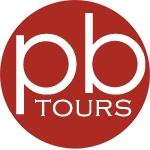
Follow the Book Tour

Published on August 26, 2013 05:00



